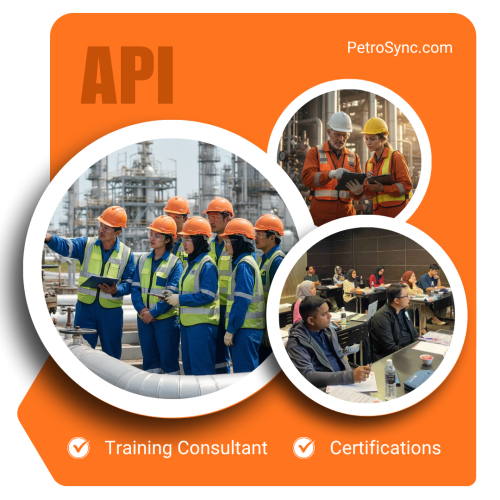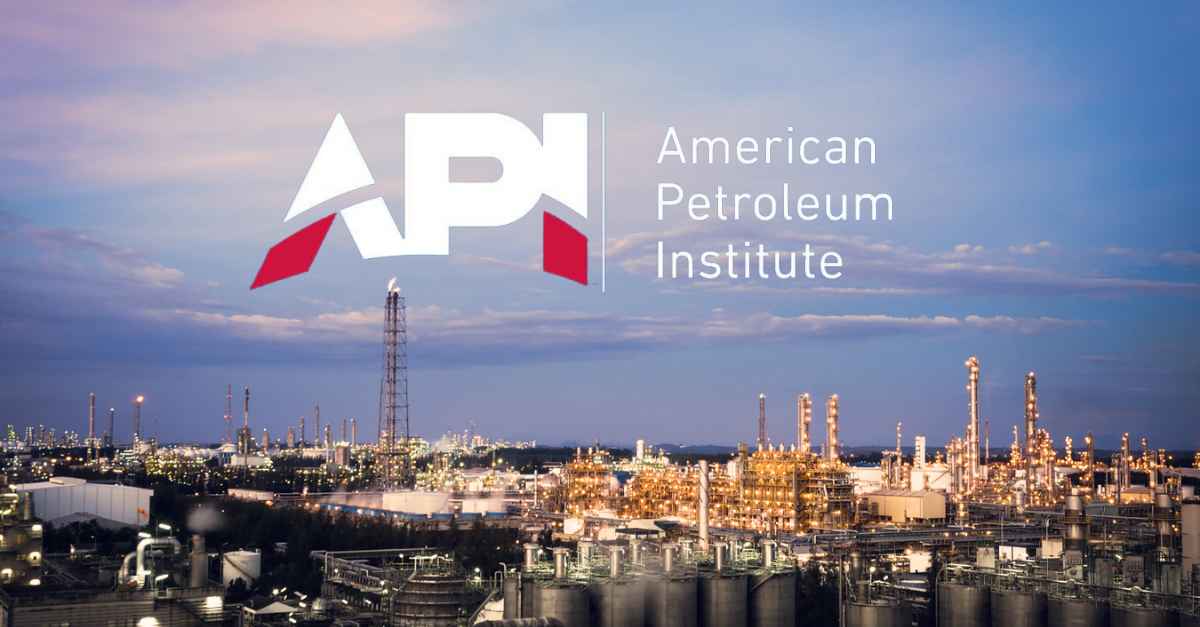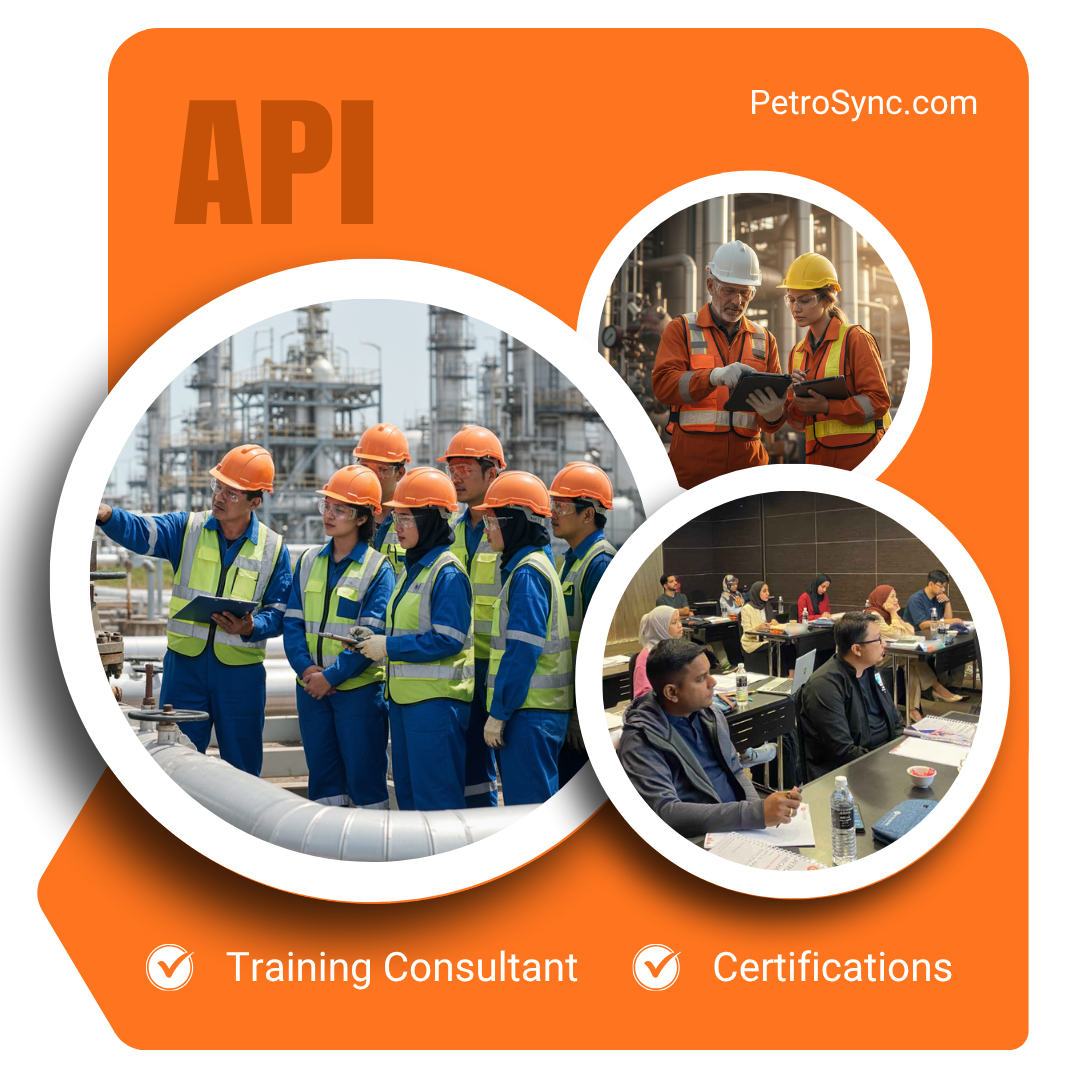API Standard in the oil and gas industry are essential for ensuring operational safety, efficiency, and regulatory compliance. These globally recognized standards provide a benchmark for best practices, helping companies maintain reliability and technical excellence across all operations.
For senior professionals, managers, and executives, understanding and implementing API standards goes beyond compliance—it strengthens performance, mitigates risk, and fosters a culture of continuous improvement within the organization.
As the oil and gas industry faces increasingly complex operations, aging infrastructure, and stricter regulatory requirements, adherence to API standards has become a cornerstone for success. Companies that systematically apply these standards can reduce downtime, prevent costly failures, and enhance both workforce competence and stakeholder confidence.
Understanding the scope and application of key API standards is the first step toward operational excellence.
What Is API Standard?
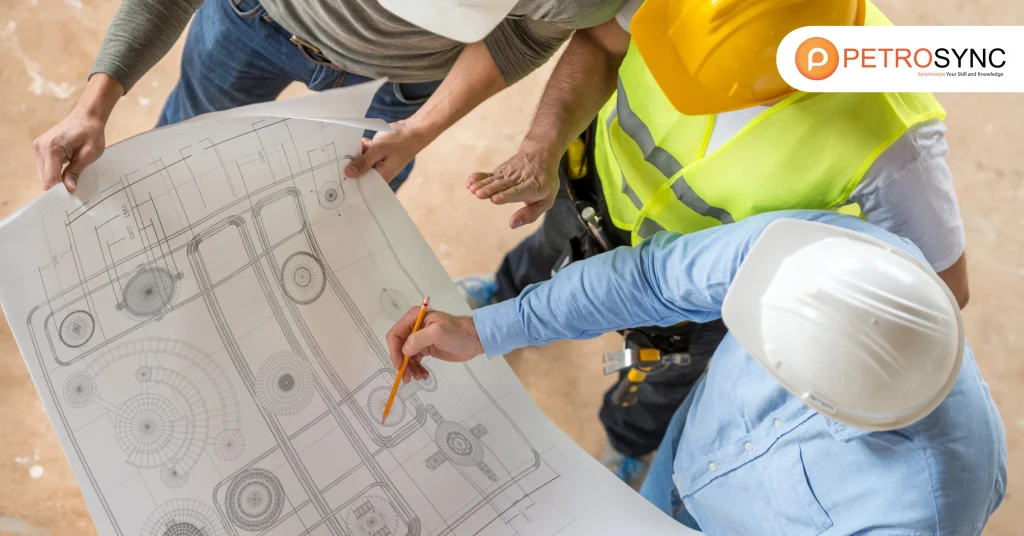
API Standards are a set of principles and best practices produced by the American Petroleum Institute to assure safety, reliability, and sustainability in the oil, gas, and petrochemical industries. These standards include everything from equipment and operational procedures to environmental protection and management systems.
Companies in these areas can maintain a consistent level of quality and safety by adhering to API Standards and ensuring that their operations meet regulatory requirements. API Standards are globally recognized, making them critical for businesses that operate globally to ensure consistent operations regardless of location.
What Is The API Document Standard?
The API Document Standard consists of official regulations for oil and gas operations, updated regularly by industry experts. Each paper aims to provide clarity and uniformity in the implementation of industry best practices. The most widely utilized API document standards are for pipeline systems, refinery operations, and well construction.
These documents help to align industry operations with regulatory and safety objectives while maintaining high levels of performance and dependability.
What is API – American Petroleum Institute?
The American Petroleum Institute (API), an association that represents the oil and gas industry in the United States, has arranged seminars, workshops, conferences, and symposia addressing public policy matters since its establishment in 1919, focusing on recommended practices regarding safety.
Further, API covers equipment, operations, effective water management, spill prevention, and environmental protection as part of its concern. Commonly used in federal and state oil and natural gas regulations, API standards have become one of the most cited standards by international regulators.
API has also established specific standards with the aim of promoting personnel and public safety in the oil and gas industry, including drilling, refinery operations, and well-servicing operations.
API lays the ground rules for companies and manufacturers to develop safety programs suitable for their operational needs. As a leading association with over 800 produced standards, API offers training and certification programs for workers in the industry.
What Is API Specification?
The API Specification provides detailed instructions for manufacturing, testing, and inspecting oil and gas equipment to meet safety standards. API Specification 5L defines the dimensions, material properties, and strength of pipes for oil, gas, and water transport.
Who Are The Members of The American Petroleum Institute (API)?
API members include producers, refiners, suppliers, pipeline operators, marine transporters, and service companies across the oil and gas industry. API has a vast membership base of over 600 corporate members, including some of the industry’s largest and most well-known brands.
Some of the well-known members are from Petroleum companies such as ExxonMobil, Chevron, ConocoPhillips, BP America, and Shell Oil Company. By connecting its members, API provides a forum to collaborate on common goals and advocate for policies that benefit the industry. If your company plans to join the community, you can check their official website.
What Are API Standards for the Oil Gas Industry?
American Petroleum Institute (API) standards promote established, reliable engineering, operational practices, and safe, interchangeable equipment and materials from drill bits to environmental protection. These encompass manuals, standards, specifications, recommended practices, bulletins, guidelines, and technical reports.
Companies can enhance their operational proficiency, guarantee compliance with regulations and safe procedures, and reduce the likelihood of equipment breakdowns leading to potential risks if they adhere to API codes and standards.
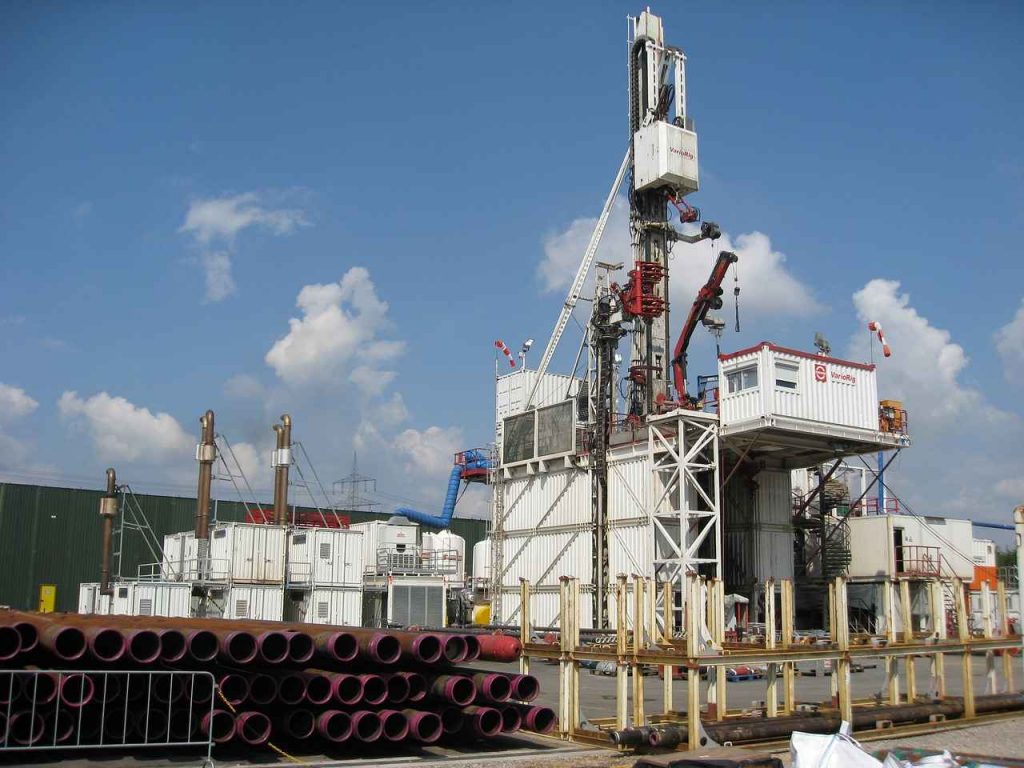 Oil and gas industry is usually compliant with API standards (credit: Pixabay)
Oil and gas industry is usually compliant with API standards (credit: Pixabay)
What Are The Most Used API Standards?
The most used API Standards in the oil and gas industry are API 5L (for line pipe), API 650 (for welded tanks), API 570 (for piping inspection), API 510 (for pressure vessel inspection), API 653 (for tank inspection), and API RP 2A (for offshore structures design).
In the table below, you will find a list of the most popular API standards integrated into PetroSync’s training for the past thirteen years, attended by engineers from prominent companies.
| Standards | Focus |
Available Training |
| API 510 – Pressure Vessel Inspection | Maintenance, inspection, repair, and alteration of pressure vessels | API 510 Training: Pressure Vessel Inspection |
| API 570 – Piping Inspector | Inspection, reparation, and alteration guidelines for metallic and fiberglass-reinforced plastic (FRP) piping systems | API 570 Training: Piping Inspector |
| API 653 – Tank Inspection, Repair, Alteration, and Reconstruction | Maintenance, inspection, repair, relocation, alteration, and reconstruction of aboveground storage tanks | API 653 Training: Tank Inspection, Repair, Alteration, and Reconstruction |
| API 580 – Risk-Based Inspection (RBI) | Integrity Management of equipment in the petroleum, petrochemical, and natural gas industries | API 580 Training: Risk-Based Inspection |
| API 581 – Base Resource Document | Assessment and management of risks associated with equipment integrity | API 581 Training: Base Resource Document |
| API 579 – Fitness For Service | Structural integrity assessment and fitness for continued service of equipment | API 579 Training: Fitness For Service |
| API 571 – Damage Mechanisms | The corrosion and materials degradation mechanisms in refining and petrochemical industries | API 571 Training: Corrosion and Materials |
| API 936 – Refractory Material | Installation quality control of monolithic refractory linings and materials | API 936 Training: Refractory Material Design, Application, Installation and Inspection |
| API 560 – Fired Heaters for General Refinery Service Online Training | The focus of API 560 standard is on the design, installation, operation, and maintenance of fired heaters in the oil and gas industry. | API 560 Training: Fired Heaters for General Refinery Service |
Several standards are favored compared to hundreds of other Individual Certification Programs released by API. Most of these standards are available in API Training by PetroSync. Below are the brief foundations of each standard.
1. API 510 – Pressure Vessel Inspection
API 510, as an inspection code, covers the maintenance, inspection, repair, and alteration of pressure vessels. In October 2022, API released the latest edition.
Though refining and chemical processing vessels are the ones who apply the API 510, other companies such as pharmaceutical, electrical, food and beverage, or any other industry where pressure vessels are utilized can also implement this standard.
To maintain the fitness of the pressure vessels, API provides API 510 certification for individuals with an extensive understanding of the pressure vessels topic. The certification is designed to improve the employers and the industry with the expected results below:
- Enhance the management’s ability to control the operation, maintenance, and repair of process units.
- Minimize the likelihood of inspection delays.
- Ensure a continued high level of safety under the supervision of highly skilled and experienced inspectors.
API 510 certification is a globally recognized certification. PetroSync offers API 510 Pressure Vessel Inspector training course with extensive research of course material covering not only Pressure Vessel Systems but also all the relevant details to help you master the industry knowledge. Reserve your spot now!
2. API 570 – Piping Inspector
API 570 provides inspection, reparation, and alteration guidelines for metallic and fiberglass-reinforced plastic (FRP) piping systems, including their associated pressure relief devices that are currently operated.
Hence API 570 certification serves as proof of your competence, expertise, and experience in the field of piping inspection and maintenance. The standard will assess your comprehension and ability to apply the piping systems knowledge in practical situations. Because of that, all applicants of API 570 must meet education requirements and have specific experiences.
With a mixture of lectures, case studies, and discussion, API 570 training by PetroSync can help you acquire theoretical and practical skills in the field of In-Service Piping Systems that can be readily applied to your piping inspector job. Enroll today and take your career to the next level.
3. API 653 – Tank Inspection, Repair, Alteration, and Reconstruction
One of the most popular standards is API 653. The code covers the maintenance, inspection, repair, relocation, alteration, and reconstruction of aboveground storage tanks constructed per API 650 and its predecessor, API 12C. API 653 outlines the minimum requirements for ensuring these tanks’ structural integrity after being put into service.
The standard is designed for companies with engineers or inspection personnel completed with experience in tank design, fabrication, repair, construction, and inspection as part of the tank maintenance effort.
Not only beneficial for tank inspectors, API 653 certification universally equips your organizations with the knowledge to ensure that your personnel carries out the highest quality standards regarding storage tank inspection. Before taking the certification program, preparing with sufficient knowledge of API 653 standards is best.
PetroSync provides API 653 Tank Inspection, Repair, Alteration, and Reconstruction training course. Hence the in-house training can be tailored to meet your organization’s specific needs at your preferred location and time. Reserve your spot and master the tank inspection strategy with PetroSync!
4. API 580 Risk-Based Inspection and API 581 Base Resource Documents
API 580 standard evaluates a candidate’s comprehension of risk-based inspection (RBI) principles, methods, and practices within the petroleum, petrochemical, and natural gas sectors. The certification is renowned as a measure of proficiency in RBI. Employers and regulatory agencies usually demand this certification.
Meanwhile, API 581 guides assessing equipment failure risks, prioritizing inspections, data management, and program implementation. API 581 is widely used to ensure equipment safety and reliability in high-risk environments.
If both standards cover risk inspection, what is the difference between API 580 and API 581? API 580 relies on the RBI development guidance program, while API 581 modulates quantitative methods for COF, POF calculation, and establishes risk-based inspection plans.
Considering how API 580 and API 581 Risk-Based Inspection & Base Resource Document training course help you in the field of asset integrity management, most experts in the industry recommend taking the API 580 and API 581 certifications.
You can enroll in API 580 and 581 training crafted by PetroSync to master the knowledge of risk-based inspection with active learning, combining case studies, lectures, and discussion. Reserve your spot today!
6. API 579 – Fitness For Service
Fitness for Service (FFS), popularly known as API 579, is one of the most commonly used methods regulating the correct approach in assessing equipment’s safety and efficiency for a desired future period. This standard is a result of collaboration between API and ASME (in the name of ASME FFS-1) to cater to any flaws, damage, or aging conditions that may happen in monitoring pressure vessels, piping, and tanks.
Though API does not open any certification for this particular standard, this does not diminish the value of mastering API 579. The standard is highly recommended for individuals in various roles, including inspection personnel, chemical or mechanical engineers, and process engineers.
This standard has wide-ranging applications, so design engineers and maintenance engineers who are involved in the repair, maintenance, and troubleshooting of plant equipment in the refining, petrochemical, and chemical industries may also find it beneficial.
Dive deeper into the knowledge of API 579 Fitness For Service training course with PetroSync! We deliver a 90% success rate in helping students pass the exam, PetroSync commits to helping you achieve your career aspirations.
7. API 571 – Damage Mechanisms Affecting Fixed Equipment in The Refining Industry
The purpose of API 571 is to cover a comprehensive understanding of damage mechanisms in refining, petrochemical, and other process industries. API 571 can also act as a valuable reference document either on its own or on its complementary support for different API standards and recommended practices. Nearly 70 different damage mechanisms are covered under API 571, along with the critical factors of causality.
API 571 is hoped to give a strong grounding and fundamentals to the engineers, supervisors, and managers before making an informed decision. With that being said, API 571 certification can help individuals ensure the safety of the environment and involved personnel.
PetroSync crafts API 571 Damage Mechanism Affecting Fixed Equipment in the Refining Industry training course with in-depth research of course material. Claim your spot and learn a handful of processes and environmental parameters with experienced instructors in the industry with PetroSync!

8. API 936: Refractory Material Design, Application, Installation and Inspection
API 936 is a standard that focuses on everything related to refractory materials used in industrial settings. It explains how designers design, apply, install, and inspect these materials to ensure they work effectively.
The standard guides the selection of the right refractory material for specific applications and ensures its correct installation.. It outlines procedures for inspecting refractory linings to identify defects that could impact performance, ensuring safety and quality.
9. API 560 – Fired Heaters for General Refinery Service Online Training
API 560 is a standard that focuses on fired heaters used in refineries for heating various substances during the refining process. These heaters play a crucial role in heating crude oil and other materials to specific temperatures for processing.
The standard covers everything from the design and construction of these heaters to their operation and maintenance. It guides engineers and manufacturers to build fired heaters safely and efficiently while meeting industry standards for performance and environmental protection.
API 560 outlines specifications for different types of fired heaters, including their components like burners, tubes, and refractory materials. It also includes requirements for safety systems and emissions control to minimize risks and environmental impact.
Following API 560 helps ensure that fired heaters in refineries operate reliably, efficiently, and safely, contributing to the smooth operation of refinery processes and compliance with regulatory standards.
Is API A Standard Or Code?
API is primarily a standards body, not a code authority. Regulatory agencies often require and enforce codes, while they largely leave API standards as voluntary. However, they frequently mention API standards in codes, which makes them de facto obligations in some jurisdictions. In some cases, legal frameworks or contracts may adopt API standards.
Effectively giving them the same status as a code. While API provides guidelines for safe and effective operations, the primary difference lies in the fact that API Standards serve as recommendations, while codes are legally enforceable regulations. Nonetheless, adherence to API Standards can greatly enhance operational safety and regulatory compliance.
What Is The Difference Between API Standard, API RP, and API MPMS?
1. API Standards (API STD)
API Standards are like rulebooks for the oil and gas industry. They provide detailed instructions on how to design, build, and operate equipment and systems used in the industry. These standards are essential because they ensure that everything, from storage tanks to wellhead equipment, meets specific technical requirements.
By following these standards, companies can maintain safety, quality, and consistency in their operations. For example, API STD 650 lays out the guidelines for constructing storage tanks, while API STD 6A defines the requirements for wellhead and Christmas tree equipment.
2. API Recommended Practices (API RP)
API Recommended Practices are helpful guides that provide advice on how to perform various tasks in the oil and gas industry. These practices are not mandatory but are considered industry best practices. They focus on specific areas and offer guidance on how to achieve desired outcomes safely and efficiently.
For instance, API RP 581 offers guidelines and a structured approach for assessing and managing the risk associated with the operation of equipment in the oil and gas industry. These recommended practices help companies make informed decisions and improve their processes.
3. API Manual of Petroleum Measurement Standards (API MPMS)
The API Manual of Petroleum Measurement Standards explains procedures for accurately measuring petroleum and related products. This manual ensures accurate measurements, preventing costly errors and maintaining consistency for fair transactions and efficiency.
What is The Difference Between API Standard and ASME Standard?
The petroleum industry mostly designs API standards, addressing aspects like equipment design, fabrication, inspection, testing, and operational practices. Meanwhile, ASME standards have a broader application, extending to various engineering fields like mechanical, civil, chemical, and nuclear engineering. API and ASME standards ensure safety in engineering, with API focusing on oil and gas, and ASME covering various industries.
How To Get an Individual Certification Program (ICP) by API?

To become an API Inspector and obtain certification, you must pass an exam that assesses your API skills and specialization. Here are several typical procedures that one follows to acquire the API Individual Certification Program.
1. Confirm Your Eligibility and Determine API Certification Program
Each certification has specific requirements that applicants must fulfill. Read the full articles on API Certification Program. This step is crucial as API deems applicants unqualified if they don’t meet the minimum standards. The committee will not refund the submitted application either. You can refer to the API Refund Policy for more information.
2. Create an API Account and Submit The Application
Thoroughly read the login instructions provided by API in this document and complete the online application process.
3. Prepare The Required Documents
Make sure you have contact details for each employer to confirm your employment dates, skills, and experience. You must also provide the relevant documentation (educational diplomas, transcripts, certifications, or bank details for electronic payments). Note that you need to prepare all of the officially translated certificates and transcripts.
4. Study API Standards and Guidelines
API commonly recommends study materials in preparation for the certification exam. You can also sign up for oil and gas training with PetroSync to help you prepare. PetroSync partners with the most experienced and knowledgeable international instructors in their fields.
5. Take The Exam
You can take the exam at a testing center or remotely, and passing grants API certification.
6. Renew The Certification Every Three Years
A company can renew its certification by meeting continuing education or professional development requirements or retaking the exam.
All in all, API codes and standards are essential guidelines for the oil and gas industry. Companies with API certification have complied with API codes and standards for equipment design, manufacture, and testing.
API certification builds trust with customers, investors, and regulators, ensures safety and reliability, and promotes environmental responsibility. PetroSync designs its API Training to suit you in seeking a career boost with its public training.
For any organization wanting to maintain its highest standard of environmental performance, safety, and quality, PetroSync offers tailored in-house training for your special needs. Are you ready to enhance your knowledge and skills in the oil and gas industry? Sign up today.

Results-oriented and thorough SEO specialist with extensive experience in conducting keyword research, developing and implementing digital website promotion strategies and plans, managing campaigns to develop company websites in the digital world, excellent knowledge of marketing techniques and principles, and attentive strong attention to detail.

